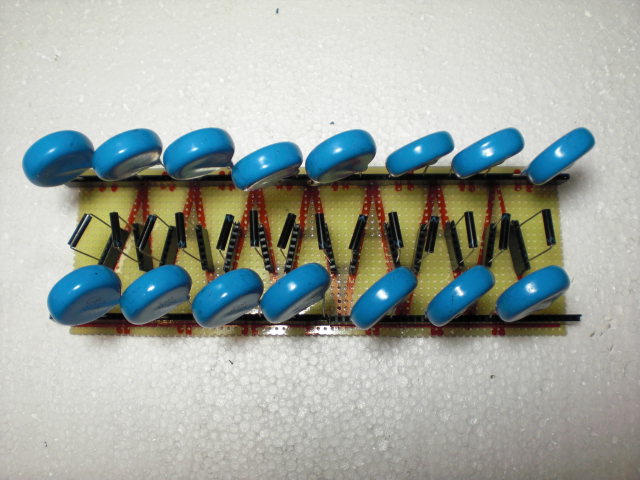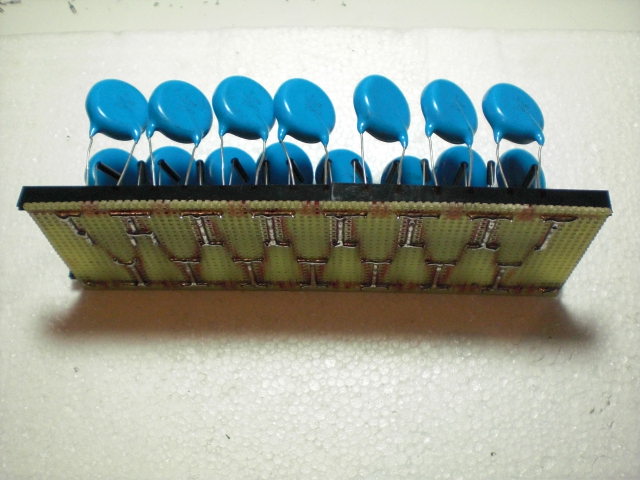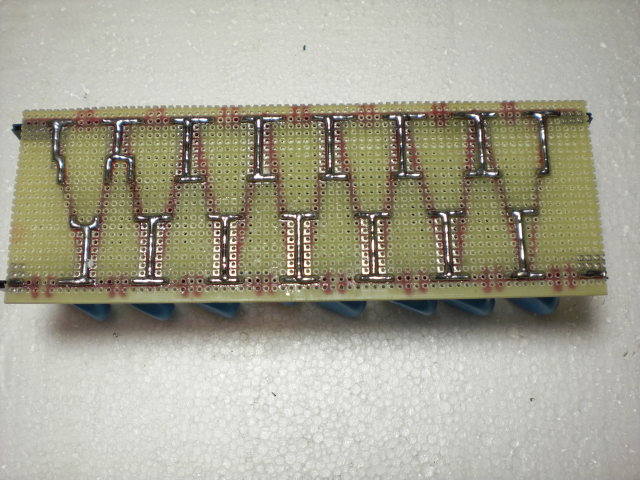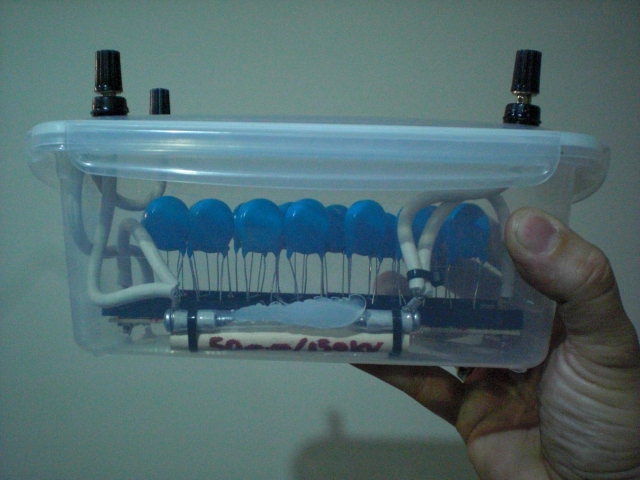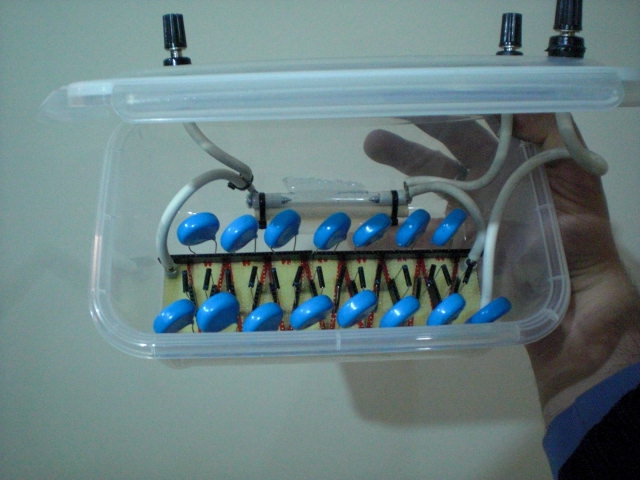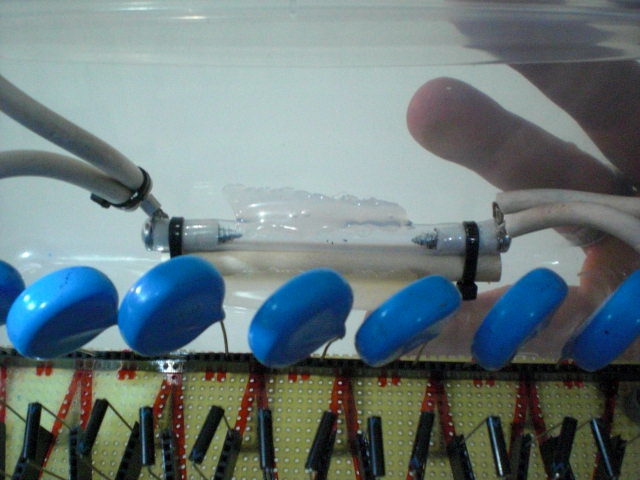Hola Amigos, he perfeccionado un poco mas el sistema, he incorporado un tubito de neón y una resistencia de 8k en serie, de esta forma se mejora la sensibilidad a la hora de apreciar las hipoteticas fugas de los elementos a testear....................................................................................Hello Friends, I have improved a little but the system has incorporated a neon tube and 8k resistor in series, thus sensitivity when assessing the hypothetical leakage of the elements to be tested is improved.
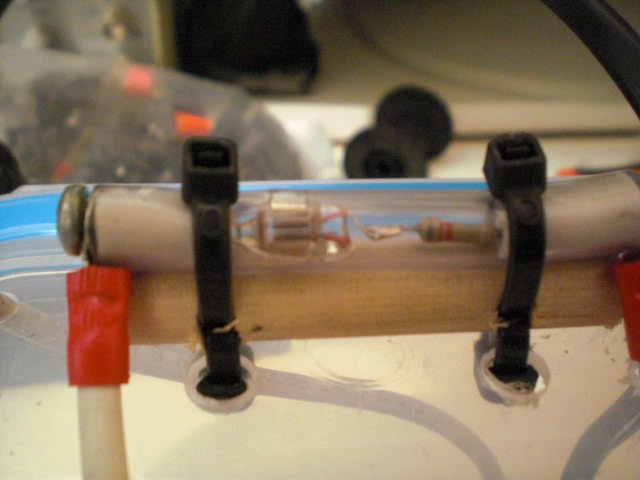
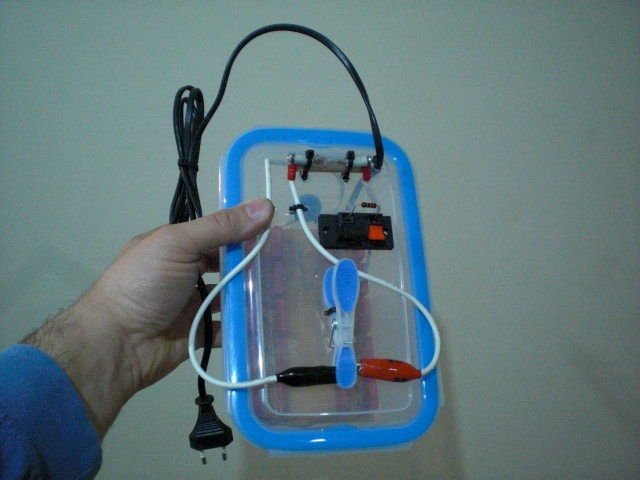
Aquí os dejo un video donde se pone de manifiesto el simple funcionamiento del aparato y donde testeo 2 condensadores, uno de ellos presenta fugas a alta tensión y el otro está nuevecito de trinqui y aparentemente no presenta fugas observables en el detector de neón (que no quiere decir que no las haya, tan solo que son tan despreciables que no se detectan por este método).....................................................................................
Here I leave a video where shows the simple operation of the device and where testing 2 capacitors, one of them leaks at high pressure and the other is brand new from Ratchet and apparently no observable leakage detector neon (not means that there are none, just that they are so despicable that are not detected by this method)
https://youtu.be/FOPieJ7wYks Tan solo me queda para rematar la faena incorporarle un voltimetro de 20.000Voltios, de esa forma sabré mediante pruebas destructivas la tensión máxima que aguantan algunos dielectricos, condensadores artesanales o convencionales y diodos polarizados inversamente, tan solo con variar la tensión del auto-transformador (variac) puedo hacer ensayos no destructivos o destructivos jajajaja.....................................................................So I just have to finish the job 20.000Voltios incorporate a voltmeter, thus know by destructive testing withstand the maximum voltage that some dielectrics, craft or conventional capacitors and diodes reverse biased, just by varying the voltage auto-transformer ( variac) I can do non-destructive or destructive testing hahaha
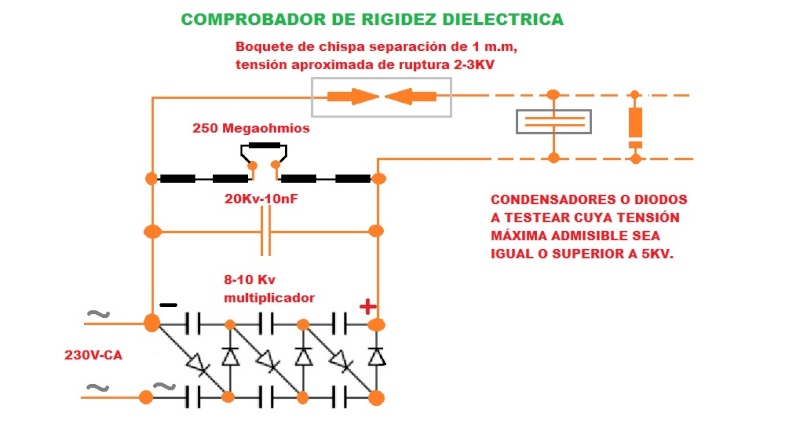 https://youtu.be/dyR91KTNNeA
https://youtu.be/dyR91KTNNeAEn principio use un boquete de chispa como "testigo" de carga, ahora lo he perfeccionado empleando un bulbo de neon y una resistencia de 10k en serie.........................In principle use a spark gap as a "witness" charge, now I've perfected using a neon bulb and a 10k resistor in series.

